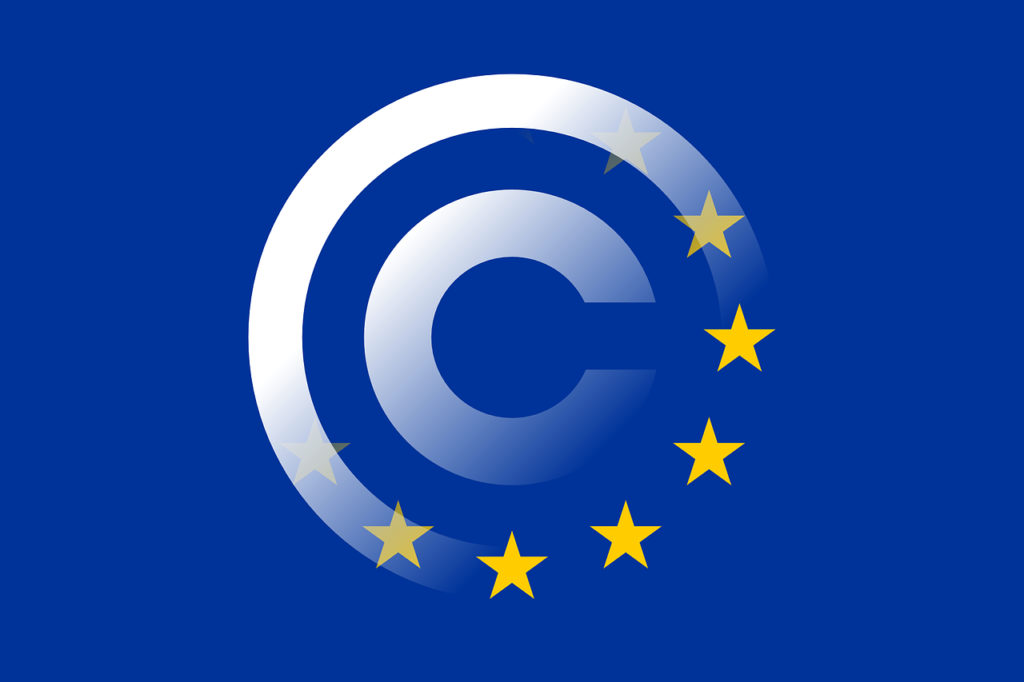Navigating the treacherous waters of copyright law can sometimes seem as tricky as sailing through a storm. “Are There Any Copyright Concerns?” is an enlightening read that aims to put your mind at ease while providing practical, easy-to-understand information on this complex subject. It not only addresses your pressing queries about copyright issues but also provides you with insights on how best to protect your work while respecting others’ rights. This comprehensive guide will prove indispensable on your journey toward a better understanding of copyright laws.

Understanding Copyright Laws
Understanding copyright laws is crucial if you’re an artist, writer, musician, or creator of any kind. These laws protect your original works from being used without your permission and ensure that you receive credit and potential compensation for your creativity.
Definition of copyright
Copyright is a legal term used to describe the rights that creators have over their literary, dramatic, musical, and artistic works. This can range from books, music, paintings, sculptures, films, computer programs, databases, advertisements, maps, technical drawings, and more. When you own the copyright to a particular work, you have the exclusive right to copy, reproduce, publish, or perform it.
Legal framework of copyrights
The legal foundation for copyrights across the world is established through various international and national laws. Principally, the Berne Convention for the Protection of Literary and Artistic Works sets a minimum set of standards for copyright protections globally. Additionally, national laws provide further protections and specifics on how copyright functions in each country.
The Purpose of copyright laws
The primary purpose of copyright laws is to protect the rights of creators and promote creativity and innovation. These laws ensure creators have control over their works, giving them the ability to earn a living from their creations. Without copyright protection, individuals or organizations could use an artist’s work without permission or compensation, which could disincentivize creativity.
Types of Works Protected by Copyright
There are multiple categories of works that are protected under copyright laws, including but not limited to:
Literary works
This includes works such as novels, poems, plays, reference works, newspapers and computer programs.
Musical works
This includes songs, symphonies, and any other musical compositions. However, the copyright only covers the composition itself, not the actual performance unless it is recorded and that recording is copyrighted.
Artistic works
This protection covers paintings, drawings, photographs, sculptures, architectural designs, engravings, and other forms of artistic expression.
Cinematic works
Films and television shows, including the accompanying music, scripts, and performances, fall under this category.
Architectural designs
Copyright protects the design, style and general layout of buildings as artistic pieces. The developers, architects or other agencies cannot have their unique design copied without their permission.
Copyright Registration
How to register for copyright
Although your work is automatically covered by copyright as soon as it exists in a tangible form, registering your copyright can provide additional legal benefits.
Benefits of copyright registration
Registering your copyright gives you a public record of your claim, which can be critical in instances of copyright infringement. Furthermore, you must usually register your copyright before you can file an infringement lawsuit.
Duration of copyright
The duration of copyright varies depending on geographical location and nature of the work. But generally, for most works, it lasts for the life of the author plus an additional 70 years.
Exceptions and Limitations to Copyright
Copyright isn’t absolute – there are exceptions and limitations carved out in laws worldwide to make sure it doesn’t stifle creativity and innovation.
Principle of fair use
Fair use is a doctrine which provides certain exceptions to the exclusive rights of copyright holders. In certain cases, the unauthorized use of copyrighted material is permissible for purposes such as criticism, news reporting, teaching, and research.
Educational exceptions
In many jurisdictions, educational institutions are permitted to use copyrighted materials for educational purposes under specific circumstances and limitations.
Liability and limitation exceptions
These exceptions limit the liability of internet service providers and similar intermediaries regarding infringements committed by their users.

Common Copyright Infringements
Copyright infringement can take on many forms. Some of the most common include:
Plagiarism
This is when someone else takes your original work and passes it off as their own without giving you credit.
Unauthorized use
This occurs when someone uses your copyrighted work without your permission, even if they credit you.
Counterfeit productions
These are unauthorized reproductions of copyrighted works, often intended to be sold as the original.
Digital piracy
This refers to the unauthorized use, reproduction, and distribution of digital copyrighted works.
Legal Issues and Penalties for Copyright Infringements
Copyright infringement can lead to severe legal consequences, both civil and criminal.
Civil penalties
In most cases, copyright disputes are civil matters. The copyright owner may sue the infringer and seek financial damages.
Criminal penalties
In extreme cases – particularly where infringement is committed on a large scale – criminal charges may be levied. Penalties can include fines or even imprisonment.
International copyright violations
Copyright law can be complicated on an international level. Various treaties and conventions aid in protecting works across borders, but specifics can vary.

Avoiding Copyright Issues
There are practical steps you can take to respect others’ copyrighted works and avoid potential infringement.
Giving proper attribution
Always acknowledge the original creator of the work. This could be through a citation, credit, or a link back to the source.
Obtaining proper permissions
Always seek explicit permission from the copyright owner before using their work, unless your use falls within an exception like fair use.
Use of royalty-free content
There is a wealth of resources available that are “royalty-free” or released under creative commons licenses, meaning you can use them without obtaining permission from the copyright owner or paying royalties.
Copyright and the Digital Space
The digital world presents unique challenges and opportunities in the context of copyrights.
Digital Copyright Laws
Digital Millennium Copyright Act (DMCA) in the United States, and similar laws in other countries, were enacted to address copyright issues in the digital space.
Internet and copyright
The Internet poses a complex environment for copyright. While it offers creators unprecedented means to distribute and monetize their works, it also increases the risk and ease of infringement.
Copyright issues in social media
Whether it’s sharing a meme, streaming a song, or republishing a blog post, copyright infringement is widespread on social media.
Piracy in the digital age
Digital piracy, the illegal copying and distribution of copyrighted digital material, is a growing issue due largely to the advent of peer-to-peer networks and torrenting websites.
Copyright versus Other Intellectual Properties
Different types of intellectual property rights protect different types of assets and must not be confused with each other.
Copyright vs patents
While copyright protects original creative works, patents protect inventions or discoveries.
Copyright vs trademarks
Trademarks protect brands and identifiers that distinguish goods and services, whereas copyright protects original works of authorship.
Copyright vs trade secrets
Trade secrets protect confidential business information that gives an enterprise a competitive edge, while copyright protects creative works.
Future of Copyright Law
As technology evolves, copyright laws must adapt to stay effective.
Impact of technology on copyright law
Technology both challenges and expands the capacity of copyright law. From 3D printing to artificial intelligence, new technologies are continually testing the boundaries of what can be copyrighted and who owns those rights.
Copyright reforms
Many believe that copyright laws need to be reformed to better align with the digital age. Changes should aim to balance the interests of creators, consumers, and intermediaries in the digital ecosystem.
Role of copyright law in promoting creativity and innovation
Looking forward, copyright laws must continue to incentivize innovation and creativity, while ensuring fair compensation to creators. At the same time, they must not inhibit new creative works or technological progress.






